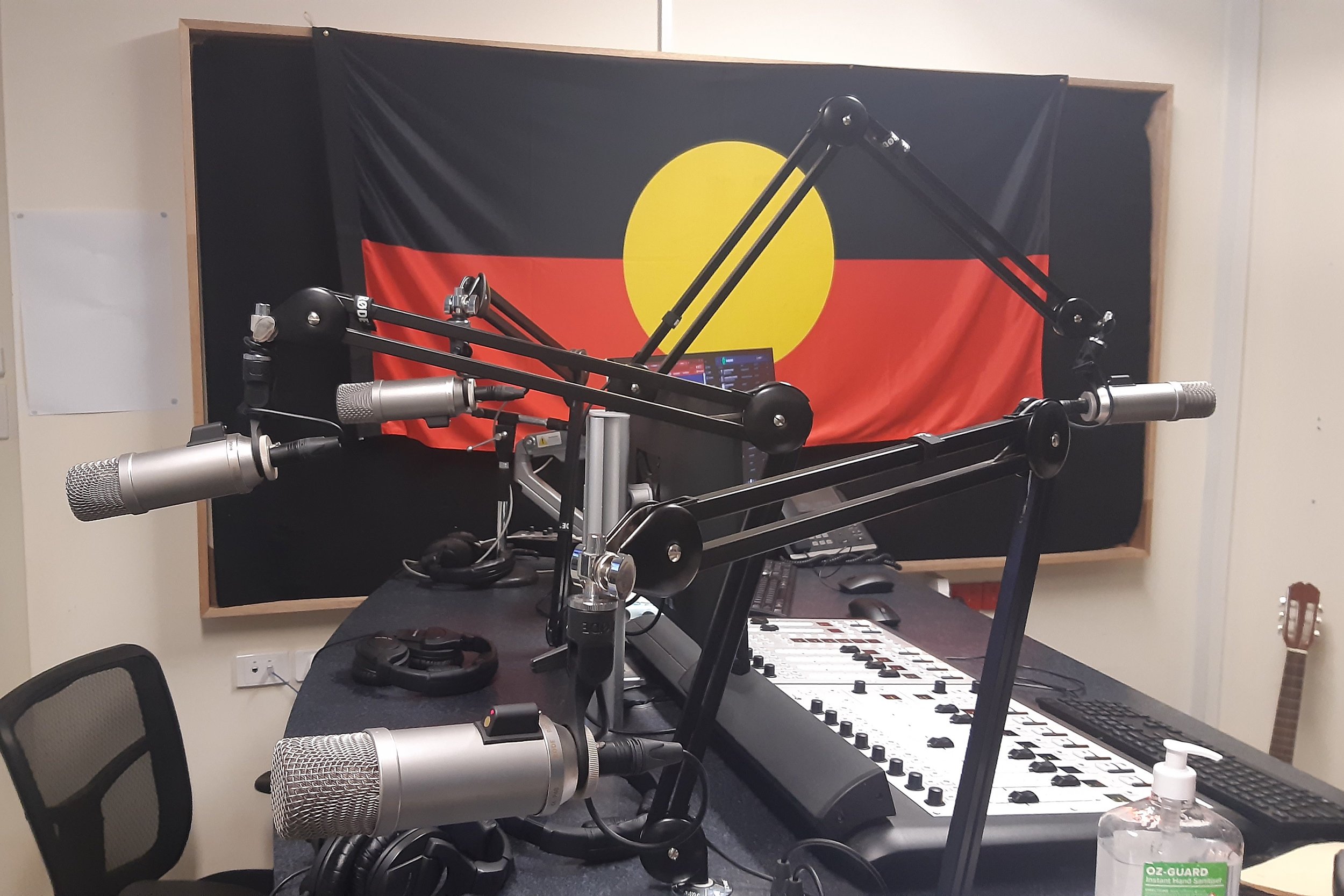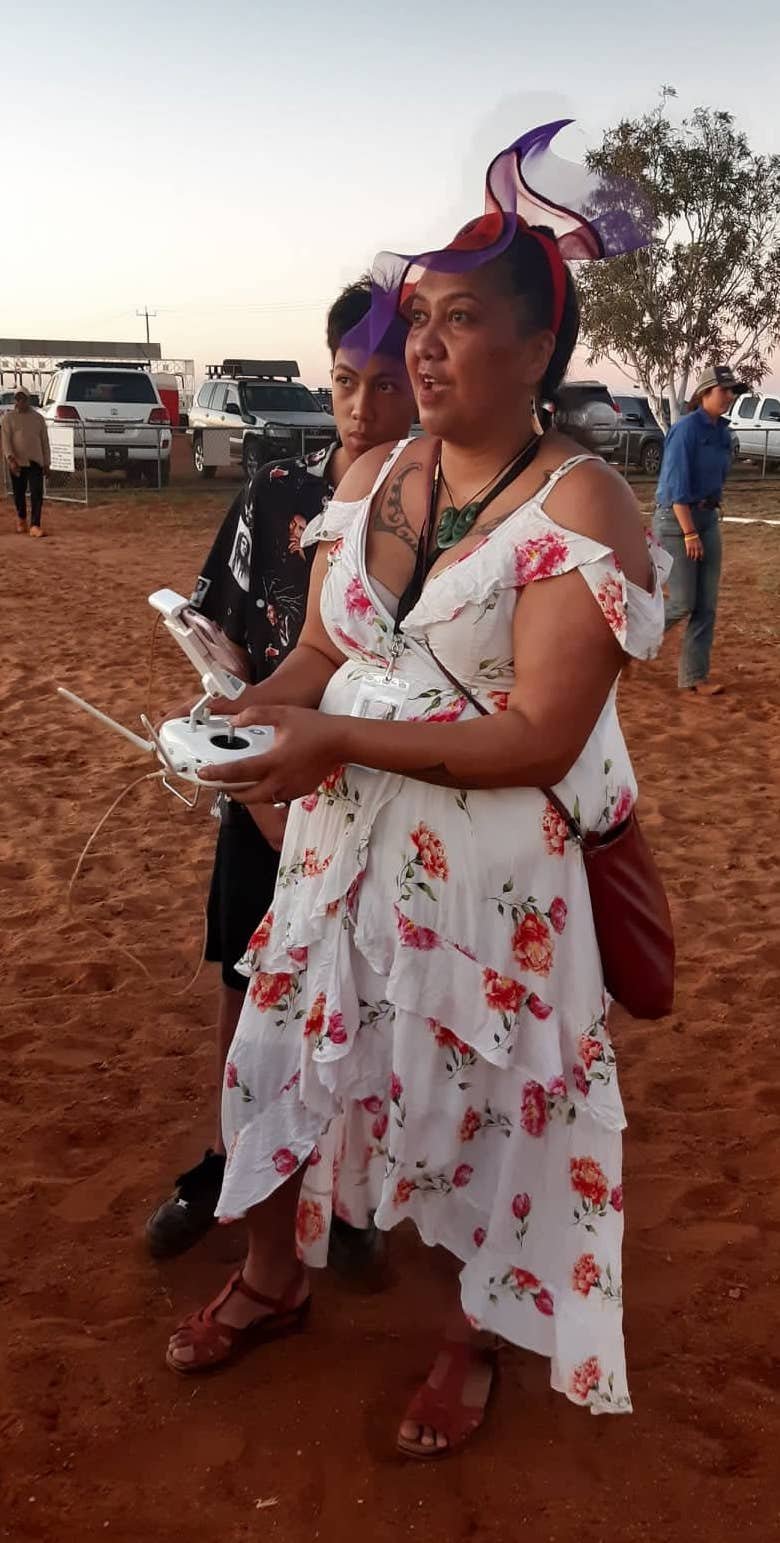Rural Utopias Residency: Nathan Gray in Ieramagadu / Roebourne #1
Nathan Gray is currently working with the community of Ieramagadu / Roebourne. This residency forms part of one of Spaced’s current programs, Rural Utopias.
Nathan Gray is an accomplished Berlin-based sound artist, programmer and broadcaster whose practice is an interdisciplinary one that crosses over into film, video, performance and installation. Gray's recent, meticulously written lecture performances explore historical, technological and social circumstances imagining them as scores for possible futures, alternate histories and radically divergent presents. Often employing sound and video, in which his background lies, these evocative works invite audiences to imagine futures beyond contemporary crises.
Here, Nathan shares an update from Ieramagadu / Roebourne.
Ngaarda media and mutual aid as research methodology
Inspired by anarchist ecologist Peter Kropotkin and the Prosfygıka self organising community in Athens, I wanted to use the concept of “mutual aid” as a research method for my residency with Spaced. Mutual aid is the idea of volunteering to build independence and community capacity, it’s not charity, it’s a political concept that aims to build links and strengthen communities from the bottom up.
Conceptualising it as a research method, it’s a way to learn about people, communities, organisations and organising in general, because grassroots cultural organisations often run at a fast pace, with limited opportunities for “sit-down” education.
So as a sound artist, I offered my skills as a sound recordist to help with the existing projects and augment the work of Ngaarda Media and Juluwarlu Arts Centre. Learning on the job, while helping achieve community goals.
Ngaarda is the only First Nations media outlet in Western Australia that offers a dedicated daily five-minute bulletin focused on First Nations breaking news. It’s based in Ieramagadu (Roebourne) - Ngarluma country and it broadcasts to the whole Pilbara region. It represents the 31 language groups of the region and plays mostly country music, both Indigenous and non-Indigenous, just the way people here like it.
Ngaarda is run by CEO Tangiora Hinaki, senior broadcaster Marion Cheedy and news producer Geoff Vivian with temp producer Hemi Hinaki filling in while i was there as well. They produce far more media than seems possible for their tiny staff, covering almost every community, cultural and political event in the area.
I hit the ground running when I was asked to cover an event called the old people’s birthday on my 3rd day in town. The old people’s birthday is an annual event celebrating the birthdays of Aboriginal people whose birth-dates were not recorded and so were allocated the 1st of July as their birthday by the government.
In Ieramagadu it’s celebrated at the site of the 2 mile government reserve, now demolished Indigenous people were housed in tin shacks there after being removed from their homelands at the end of the station era. It’s called 2 mile because that was as close as indigenous people were allowed to live to the town.
Learning about the history of Ieramagadu / Roebourne is to learn about injustice piled on top of injustice, yet the reserve era is almost universally looked upon by Ngardangali (Aboriginal People in Yindjibarndi) nostalgically. It was a time when different groups of indigenous people lived peacefully together and were able to practise their tradition and law.
I produced a mini documentary on the event for Ngaarda designed to be something that could be played every year. It’s not just about the event but also about a song i continued to hear while here, sung in Yindjibarndi to the tune of the folk song “Down to the River to Pray”. I later discovered that Marion, a colleague at the radio, had written the Yindjibarndi Lyrics.


